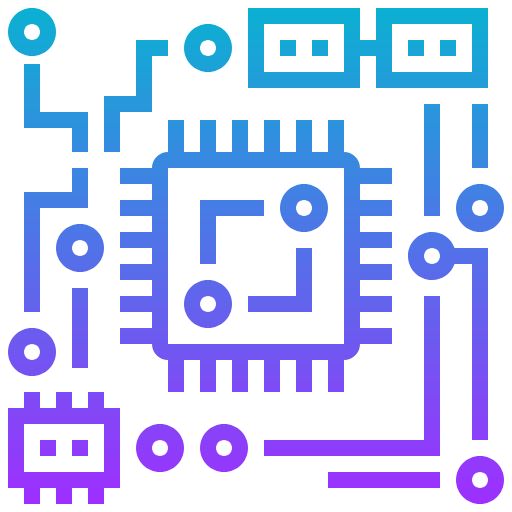Quantum Leap: The New Frontier of Machine Learning

Incorporating quantum algorithms into the training and deployment of ML models could result in more efficient systems, enabling AI to tackle problems that were previously deemed too complex or resource-intensive.
Quantum computer runs on the concepts of quantum technicians, allowing for calculations that are merely unattainable with timeless computer systems. The possibility of quantum computer systems to solve real-world organization problems, a phase referred to as “quantum energy,” is currently within reach. In spite of the substantial progression, the road to achieving quantum advantage– where quantum computers continually exceed classical computers throughout a large range of tasks– remains difficult. The advancement of quantum software is as critical as the innovation of quantum hardware. Quantum formulas that can effectively use the power of quantum cpus are still in their infancy, and their growth calls for a deep understanding of both quantum auto mechanics and ML.
While quantum computing’s complete possibility is still on the horizon, it works in useful, impactful ways. One of one of the most encouraging areas for quantum computing is supply chain optimization– an area identified by intricate logistical difficulties with countless variables and restrictions.
This job is just one instance of how quantum algorithms can streamline logistics, improve and reduce operational expenses performance. The application of quantum computing in this area highlights its capability to deal with real-world problems, also on a smaller sized scale.
In spite of the challenges, the potential of quantum computer in conjunction with ML is obvious. As quantum technology continues to advance, its impact on sectors varying from money to health care will likely be transformative. Incorporating quantum algorithms right into ML can bring about AI versions with the ability of forecasting complicated sensations, from environment modification to economic markets, with extraordinary precision.
“The obstacle is not just in the innovation itself, however in just how we integrate it right into existing company processes,” Gilkes pointed out. “There’s a requirement to develop application layers and framework that permit smooth details flow in between quantum and classical systems. We’re actively servicing this at EY, and we’re seeing comparable initiatives at locations like the Barcelona Supercomputing Center, where they’re incorporating quantum computer systems right into their existing system.”
“Supply chain problems, with their various variables and constraints, can be mapped to binary constraint optimization problems suitable for quantum formulas,” Estarellas claimed. Quantum computer might still require to use substantial speedup over timeless techniques in solving these troubles, but it offers unique benefits pertaining to source effectiveness and cost decrease.
“A global specification routine, educated by physical insights, eliminates the need for any parameter optimization in the quantum component, resulting in significant cost savings of quantum sources,” the QuEra team stated in the paper.
His expertise of the European IT business and his rate of interest in technology initiatives stimulated his move to innovation writing. For the previous 10 years he has been a routine contributor to several magazines in the IT ecological community, focusing on networks, IoT, protection, mobile modern technology and wise cities. His job appears in EE Times, InformationWeek, EBN, LightReading, Network Computer, and IEEE Xplore, among others.
The marriage of quantum computer with ML– the driving pressure behind AI– presents an amazing frontier. It calls for the processing of substantial quantities of data and the execution of complex algorithms. The present limitations of timeless computer systems often result in bottlenecks, mostly when training complex and large models.
“In army procedures, quantum computer is being made use of to enhance the placement of products and minimize inventory degrees,” she stated. “This ensures that elements are available when and where required, which is essential in keeping functional readiness.”
Gilkes enhanced this point by stating, “We’re not going to see a separation of quantum and AI. Quantum computing offers a method to satisfy these needs without exponentially boosting our information center facilities.”
“Quantum computer’s capacity to process information in a tremendously larger area compared to timeless computer systems uses a possible option to the source constraints of current information facilities,” Quilimanjaro Quantum Tech’s Estarellas claimed. The capacity of quantum computers to manage substantial datasets with relative convenience implies that ML models can be educated more efficiently, possibly resulting in developments in areas like natural language processing, computer vision and drug discovery.
Recently, scientists at Boston’s QuEra Computing, the Department of Physics at Harvard College, JILA, and the Department of Physics at the College of Colorado published a paper presenting a scalable, gradient-free formula that leverages the quantum dynamics of neutral-atom analog quantum computers for information processing. This demonstrates the potential of making use of quantum impacts that standard computer systems can not handle for much better ML.
Regardless of the substantial development, the roadway to accomplishing quantum advantage– where quantum computer systems continually outperform classical computer systems throughout a wide variety of tasks– remains tough. One of one of the most significant hurdles is the integration of quantum and timeless computing systems. The complexity of this job hinges on developing a facilities that permits these systems to work together perfectly, with each computing environment matching the various other’s strengths.
Including quantum algorithms right into the training and release of ML versions could result in more reliable systems, allowing AI to take on troubles that were formerly deemed resource-intensive or as well intricate. This might speed up the development of sophisticated AI applications, from independent automobiles browsing disorderly cityscapes to customized medication customized to a person’s hereditary account.
Establishing such orchestrators is important to ensuring that quantum and timeless systems can collaborate successfully. This will certainly make it possible for services to take advantage of the special capabilities of quantum computing while keeping the effectiveness of their timeless systems.
The growth of quantum software program is as crucial as the innovation of quantum hardware. Quantum formulas that can properly use the power of quantum processors are still in their early stage, and their growth calls for a deep understanding of both quantum technicians and ML.
As Gilkes puts it, “We’re not going to see a splitting up of quantum and AI. We are absolutely in every little thing that we’re performing in our lab, combining both.” This view envelops the ethos driving the existing wave of quantum research– a values based in the idea that quantum and classic computer will not simply exist together however will certainly operate in tandem to resolve the globe’s most important troubles.
Along with these domains, AI capacity optimization is another frontier where quantum computing shows its capacity. “The surge of AI has actually resulted in substantial challenges, specifically with limited server area and cooling requirements. Quantum algorithms are now being used to optimize web server usage and enhance the effectiveness of AI designs, lowering the overall capability required,” Gilkes stated.
Quantum computing operates the concepts of quantum mechanics, permitting computations that are simply unattainable with timeless computers. The capacity of quantum computer systems to solve real-world business troubles, a stage referred to as “quantum utility,” is currently available. “We are presently in the stage of quantum energy,” Gilkes claimed. “Quantum computer currently offers functional worth and addresses real-world company problems.”
The quantum revolution is not simply about technological improvement; it is regarding reimagining the analytic technique. Quantum computing challenges us to believe past the limitations of timeless approaches, motivating the exploration of brand-new formulas and novel strategies to long-standing challenges.
The combining of quantum computing and ML provides substantial possibility for the future. The future of AI and ML might depend on breakthroughs in quantum computer.
Gilkes clarifies on this by explaining that quantum computer is gaining ground in areas vital for service operations and societal effect. “When we speak about image recognition,” she keeps in mind, “we’re seeing quantum computer make a genuine distinction in analyzing satellite information. This has considerable applications in fire farming, insurance coverage and discovery cases assessment.”
The utility of quantum computer is assisting in genomics– a self-control critical for advancements in tailored medication. Gilkes discusses that “EY’s quantum lab is proactively dealing with DNA sequencing and making advancements in genomics. We go to a factor where quantum computing is beginning to tackle the large information challenges inherent in these areas.”
1 Quantum algorithms2 Quantum computing
« Silo AI Acquisition Bolsters AMDs Software and Enterprise StrengthCustom Connectors — The Value of an Experienced Connector Manufacturer »
